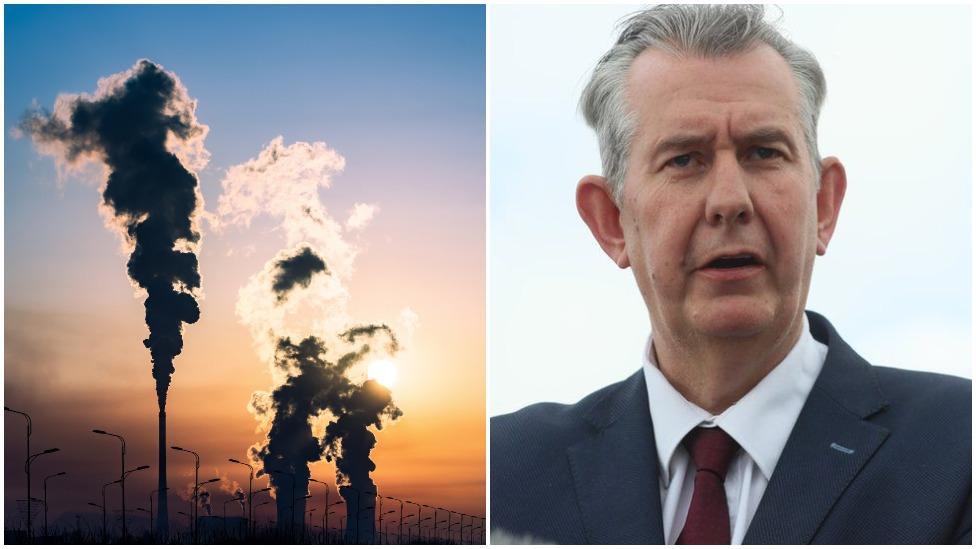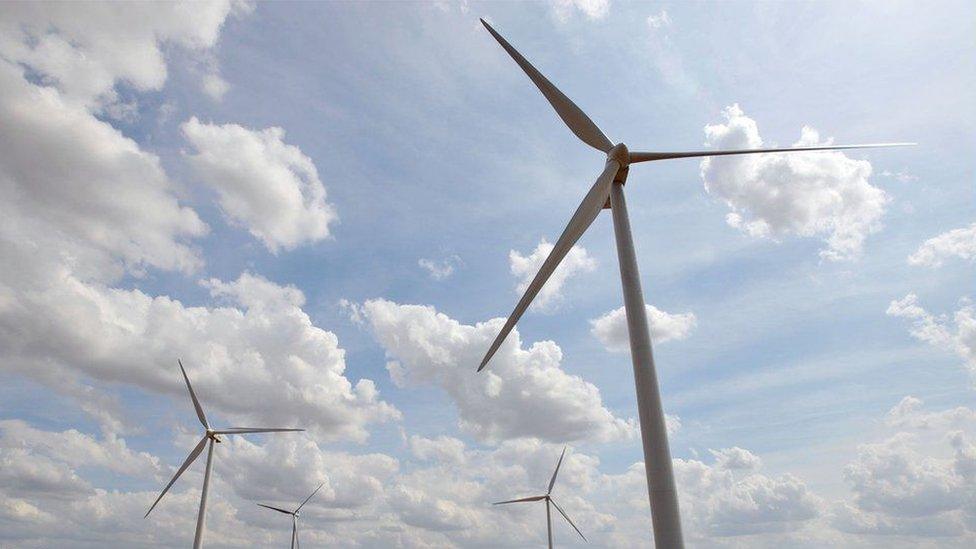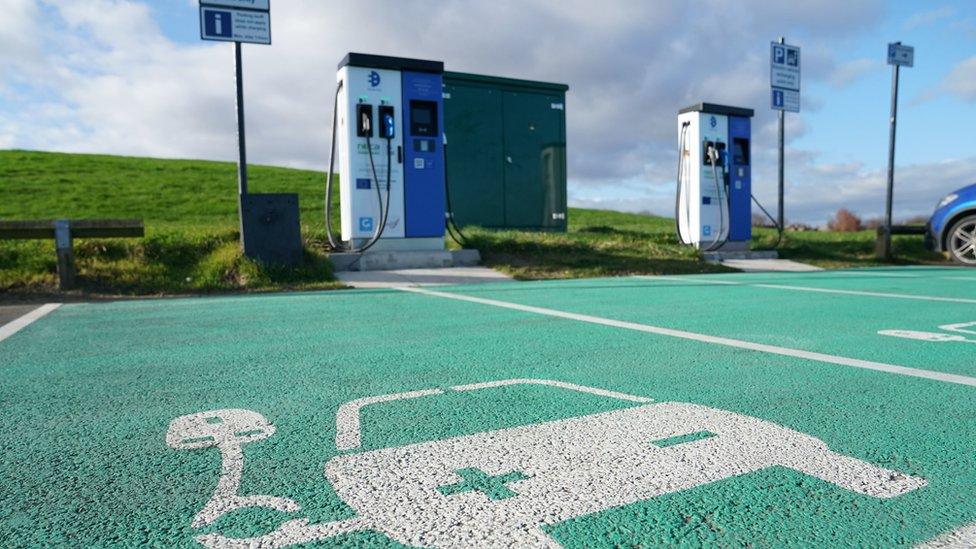Climate change: Second climate bill given green light by Executive
- Published

Edwin Poots' bill has a less stringent target and a longer time frame than its rival
A second climate bill is to begin its path through the Northern Ireland Assembly.
Agriculture and Environment Minister Edwin Poots received approval from the executive to progress it on Thursday.
It joins an existing private members' Climate Bill which is already being scrutinised by assembly members.
It follows a warning by Lord Deben, head of the UK's top climate body, that political instability at Stormont could hinder action on climate change.
He chairs the Climate Change Committee, which advises devolved administrations and central government on emissions cuts and targets.
Mr Poots' bill has a less stringent target and a longer time frame than its rival.
It draws on the recommendations by Lord Deben's Climate Change Committee, which suggested Northern Ireland adopt a cut of at least 82% in emissions by 2050.
The private members bill would see a tougher target which would have to be reached sooner.
Opponents claim its net zero by 2045 target would damage the agriculture industry.
The sector is the biggest emitter in Northern Ireland, responsible for around 26% of greenhouse gas emissions.

Analysis: Two bills means a heavy, complex workload for legislators
After years of no Northern Ireland-specific climate legislation, we now have two bills to consider at the same time.
With not long left in this assembly mandate, it's not exactly clear how that will work.
MLAs will have to scrutinise them, but it's a heavy workload in a complex area.
One possible option is to merge them.
But with different targets over different timeframes it may be hard to get consensus on that.

Mr Poots said he intended to push his bill forward with a view to passing it before next May's election.
He said he believed his bill was the one which should be adopted as it had "the right level of ambition and credibility".
It is not clear how scrutiny of two very similar pieces of legislation can work in practice.
Earlier this month a senior departmental official said there was nothing to stop the two bills running at the same time.
Stormont collapse 'put NI behind'
Speaking prior to Mr Poots' bill being approved by the executive, Lord Deben said Northern Ireland was "further behind the curve" than it ought to be.
He blamed the three year collapse of Stormont over a renewable heat scandal.
He was speaking as the committee delivered its final report on UK climate progress ahead of a key international conference in Scotland.
The UK is preparing to host COP26 in Glasgow in November where countries will try and agree long-term emissions cuts.
Lord Deben said if Northern Ireland did not adopt the correct policies, the UK would not be able to keep its commitments of net zero by 2050 - undermining its authority on the issue of climate change.
Climate Change Committee chairman Lord Deben says NI is "further behind the curve" than it should be
The report recommended Northern Ireland focuses on plans for climate legislation; to decarbonise heat; improve housing standards; adopt new agricultural practices and improve waste management.
Lord Deben said he was concerned that the current political uncertainty could hamper progress.
'Immediate action'
"Political instability is the enemy of long-term planning and that is exactly what we need. Not just long-term planning but immediate action."
And he warned of the risks if climate legislation was delayed beyond the next assembly election, or if the institutions collapsed leading to another period of stalemate.
"Every week that we lose makes the next week more difficult," he said.
"If you leave it for another two years it's going to be more expensive, it's going to be more painful and those who are most hurt by it are going to be hurt more, and that really isn't an acceptable situation."
The Climate Change Committee's report on the UK's progress in cutting emissions said the government must now deliver on its commitments.
It said a record decrease in emissions during lockdown was expected to rebound as the UK emerged from the pandemic.
The report's authors said a failure to commit to policies that would drive deep cuts in emissions would undermine the UK's authority to get a deal at COP26.
Related topics
- Published10 June 2021

- Published23 March 2021
